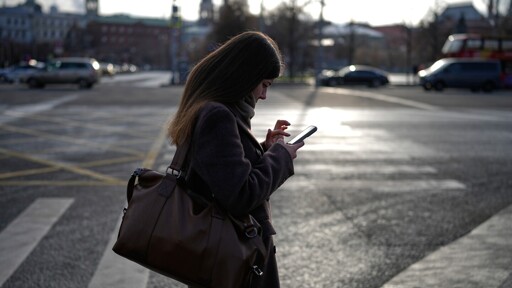When Russians look back at 2025, they might remember it as the year when the government took even tighter control of the internet.
Credit cards that won’t buy a ticket on public transport. ATMs that don’t connect to a network. Messaging apps that are down. Cellphones that don’t receive texts or data after a trip abroad. Mothers of diabetic children even complain with alarm that they can’t monitor their kids’ blood glucose levels during outages.
I thought this was the result of Ukrainian drone attacks, but no. This is the governments doing. Scary stuff, very much reminiscent of the Soviet Union - a new, more tech savvy version.
Widespread cellphone internet shutdowns began in May and persisted through summer and into the fall. In November, 57 Russian regions on average reported daily disruptions to cellphone links, according to Na Svyazi, an activist group monitoring shutdowns.
Authorities say these outages are designed to prevent Ukrainian drones from tapping mobile networks for navigation.
Kremlin spokesman Dmitry Peskov said they are “absolutely justified and necessary,” but analyst Kateryna Stepanenko of the Washington-based Institute for the Study of War said they haven’t been effective in curbing the intensity of Ukraine’s drone attacks, “given the amount of strikes we’ve seen in recent months on Russian oil refineries.”
In many regions, only a handful of government-approved Russian websites and online services — designated as being on “white lists” — are available during connectivity blackouts.
Authorities have tried touting the joys of reconnecting with a technology-free lifestyle.
One recent anti-drone restriction sets 24-hour “cooling periods” during which data and texts are blocked from SIM cards that were carried abroad or have been inactive for 72 hours. The owner can unblock it via a link received by text message.
Unblocking becomes impossible, however, if a SIM card is used in internet-connected appliances or equipment without interfaces for receiving text messages, like portable Wi-Fi routers, cars or meter boxes.
Other restrictions targeted two popular messaging apps: WhatsApp, with about 96 million monthly users in October, and Telegram, with 91 million, according to media monitoring group Mediascope.
Authorities began restricting calls on these apps in August, supposedly to stop phone scams, and are throttling them in some parts of Russia.
Neither app is on the government “white list.”
On the list is Russian messaging service MAX. Authorities actively promote it and since September the service is required to be preinstalled on all smartphones in Russia. Critics see it as a surveillance tool as MAX openly declares it will share user data with authorities upon request. Experts also say it doesn’t use end-to-end encryption.
3 day invasion going well




